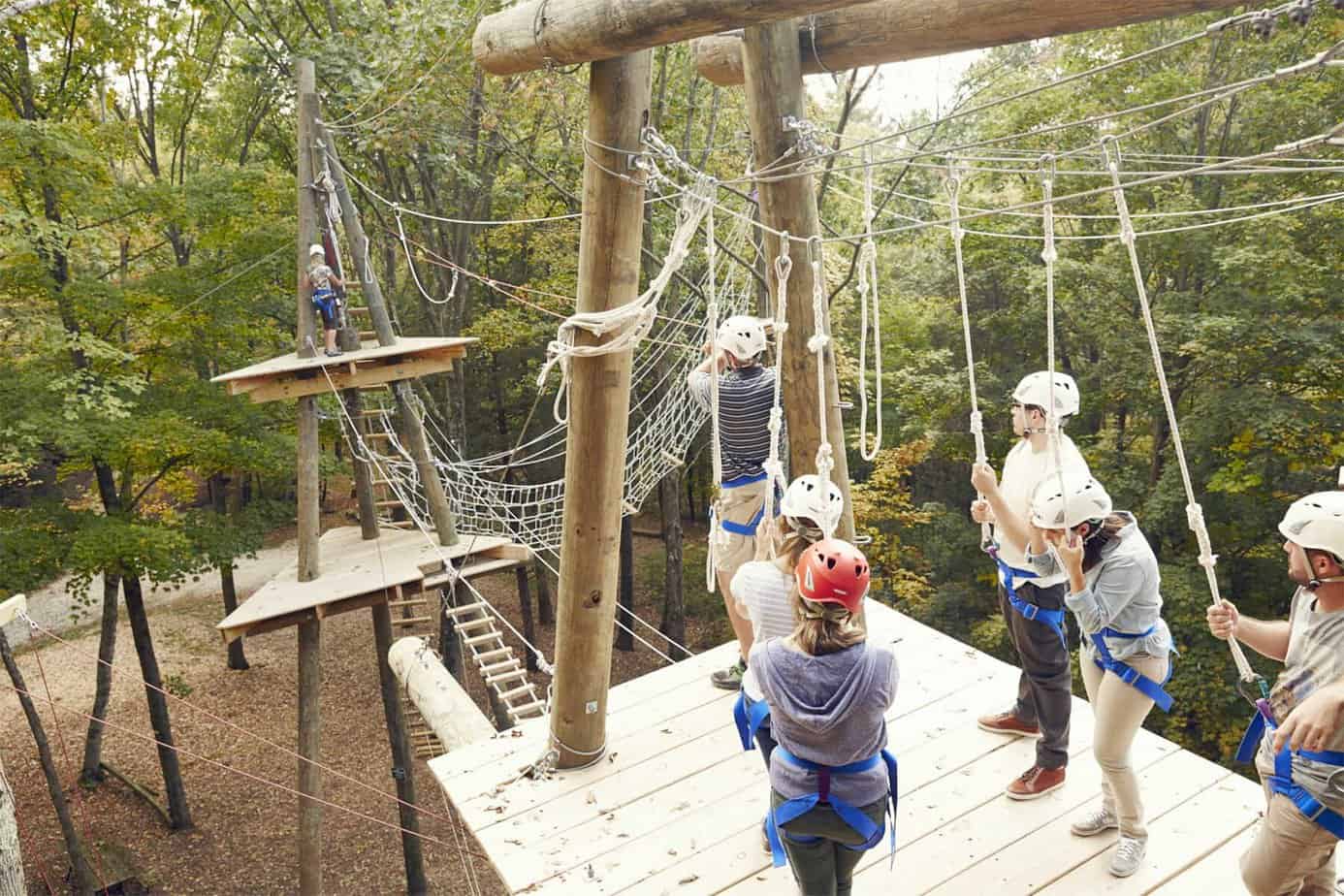Key Takeaways: This article discusses adventure-based counseling (ABC), a therapeutic approach combining physical activities and outdoor experiences with traditional counseling techniques. ABC can help individuals in recovery and others facing challenges to develop resilience, teamwork, and problem-solving skills. This approach is beneficial for those seeking alternative therapies and can be integrated into addiction treatment, offering both mental and physical health improvements, and the enjoyment of sober activities.
Many different types of alternative therapies, such as adventure and wilderness therapy programs exist that offer not just therapy, but a transformative experience. Adventure-based therapy or counseling is one such approach that integrates the thrill of adventure with therapeutic practices, providing a holistic pathway to healing. Adventure-based counseling can be particularly beneficial for those in drug and alcohol recovery, as well as those looking for innovative ways to address emotional and psychological challenges. Learn more about adventure-therapy-based activities for addiction works at Mountainside, and who can benefit from this exciting therapeutic method.
What Is Adventure-Based Counseling?
Adventure-based counseling (ABC) is a therapeutic approach that combines physical activities and outdoor experiences with traditional counseling techniques. The premise is simple yet powerful: engaging in adventure activities—such as hiking, rock climbing, or team-building exercises—can facilitate personal growth, foster emotional healing, and promote self-discovery. The use of nature-based addiction recovery has risen in recent years, and the efficacy of adventure therapy for substance abuse disorder shows great promise: according to research, it helps 70 percent of participants.
The core philosophy behind ABC is that the challenges faced during outdoor adventures can mirror the challenges individuals encounter in their daily lives. By overcoming these physical challenges, participants can develop skills like resilience, teamwork, and problem-solving, which are essential for moving through emotional obstacles. The integration of nature and adventure into the healing process not only adds an element of excitement but also grounds people and helps them to achieve stages of change in recovery, connecting with themselves and their surroundings on a deeper level.
How Does Adventure-Based Therapy Work?
Adventure-based therapy typically involves a therapist trained in adventure therapy for addiction, who guides participants through a series of structured activities designed to promote personal growth and healing. This person helps people discover that overcoming addiction through adventure is possible. Here’s a closer look at how this process unfolds:
- Assessment and goal setting: The journey begins with an assessment of the person’s needs, goals, and challenges. The therapist works collaboratively with the individual to identify specific objectives for the counseling process.
- Engagement in activities: Participants engage in various adventure activities once goals are established. These can range from low-ropes courses to hiking trips, each selected based on the individual’s comfort level and therapeutic goals. The activities are designed to challenge participants both physically and emotionally.
- Reflection and processing: After each activity, the therapist facilitates a debriefing session. This is a crucial component of ABC, as it allows participants to reflect on their experiences, emotions, and the lessons learned during the adventure. Through guided discussions, people can connect their experiences to their personal challenges and growth, which aids in discovering what the definition of recovery means in their journey.
- Integration into daily life: The final phase involves helping participants integrate the insights gained from their adventures into their everyday lives. This may include developing coping strategies, setting new goals, or creating action plans to address ongoing challenges.
At Mountainside, experiential facilitators lead clients through a series of unique activities that are designed to invite each participant to “lean into” their perceived limitations. Always “challenge by choice.” The goal of adventure counseling in drug and alcohol rehab programs is for the participant to feel the fear, yet push just beyond it. Each time this happens, the client comes away with a feeling of increased confidence and strength. This helps many conditions, as an alternative addiction treatment or assisting someone recovering from PTSD.
This helps “build a muscle” to feelings of fear, anxiety, and discomfort. Moving forward in recovery, when the client experiences similar feelings in everyday life, they will likely feel more equipped to handle them proactively, whether through the 12 steps of AA or an alternative support system.
Adventure-Based Therapy Offerings at Mountainside
Low Ropes Course
Our course is constructed of cable, rope, and wood, and ranges from several inches to several feet in the air. It is utilized to build trust, strengthen communication and social skills, and cultivate teamwork.
High Ropes Course
Our custom-built “Voyager” course ranges from 25 to 50 feet in the air. It helps clients move outside of their comfort zone and lean into fear as an opportunity for growth. Participation in high ropes also encourages positive risk-taking, promotes interpersonal growth, and gives clients an experience of “sober fun.”
Rock Climbing
This can take place at either an indoor or outdoor rock climbing wall. It helps develop focus, determination, and body awareness while helping clients gain a sense of accomplishment.
Hikes and Walks
Guided hikes and walks through the natural world of the forest help to soothe anxiety, improve mood, reduce depression, increase self-esteem, and create a sense of connection to something larger than oneself through nature.
Who Should Try Adventure-Based Counseling?
The benefits of adventure-based counseling are many, and it can be beneficial for a wide range of individuals, particularly those who may feel stuck in traditional therapeutic modalities and have been seeking holistic addiction treatment centers. Those in drug and alcohol recovery, youth and adolescents, and those seeking change can especially benefit from adventure-based therapy. Whether you are searching for an “alcohol rehab near me” or a kratom detox center, ABC can help and be an integral part of your recovery.
However, ABC is for everyone—and adventure therapy outcomes reveal it has the power to help a lot of people, especially those looking to immerse themselves deeper into their addiction treatment. While the benefits vary depending on the activity and group therapy topics for addiction differ, adventure-based counseling can be a great addition to traditional treatment. Recovering from addiction is not easy. It requires commitment, determination, and a strong network of support—substance abuse disorder providers that offer adventure therapy can help clients build a solid foundation for it all.
It also allows people to spend time outdoors, which has been proven to improve both physical and mental health. Not only will they feel happier and healthier, but adventure-based therapy activities are fun–reminding clients that fun without substances is possible.
If you or a friend or family member are struggling with drug and alcohol addiction, Mountainside can help. We offer adventure-based therapy in addition to many other proven therapeutic modalities to help people recover and go on to lead fulfilling, healthy lives.
If you or a loved one is struggling with addiction, Mountainside can help.
Click here or call (888) 833-4676 to speak with one of our addiction treatment experts.

 By
By 







